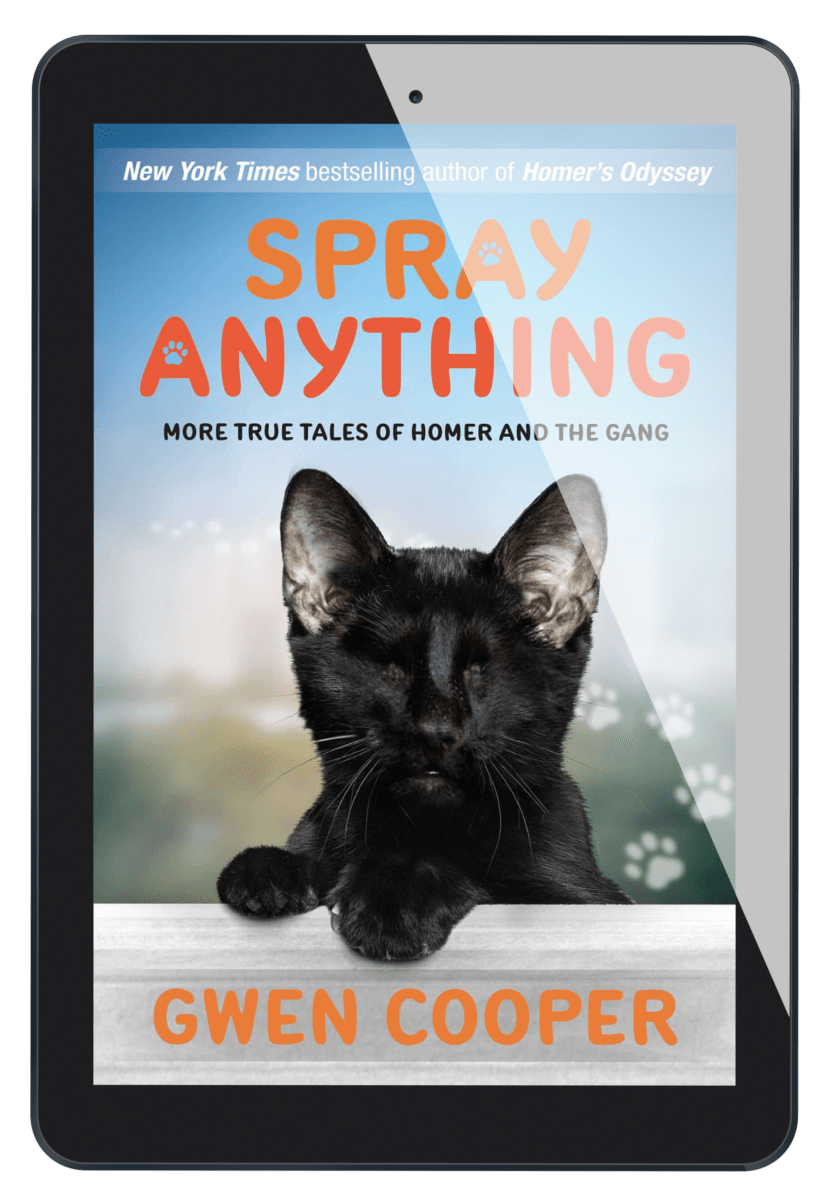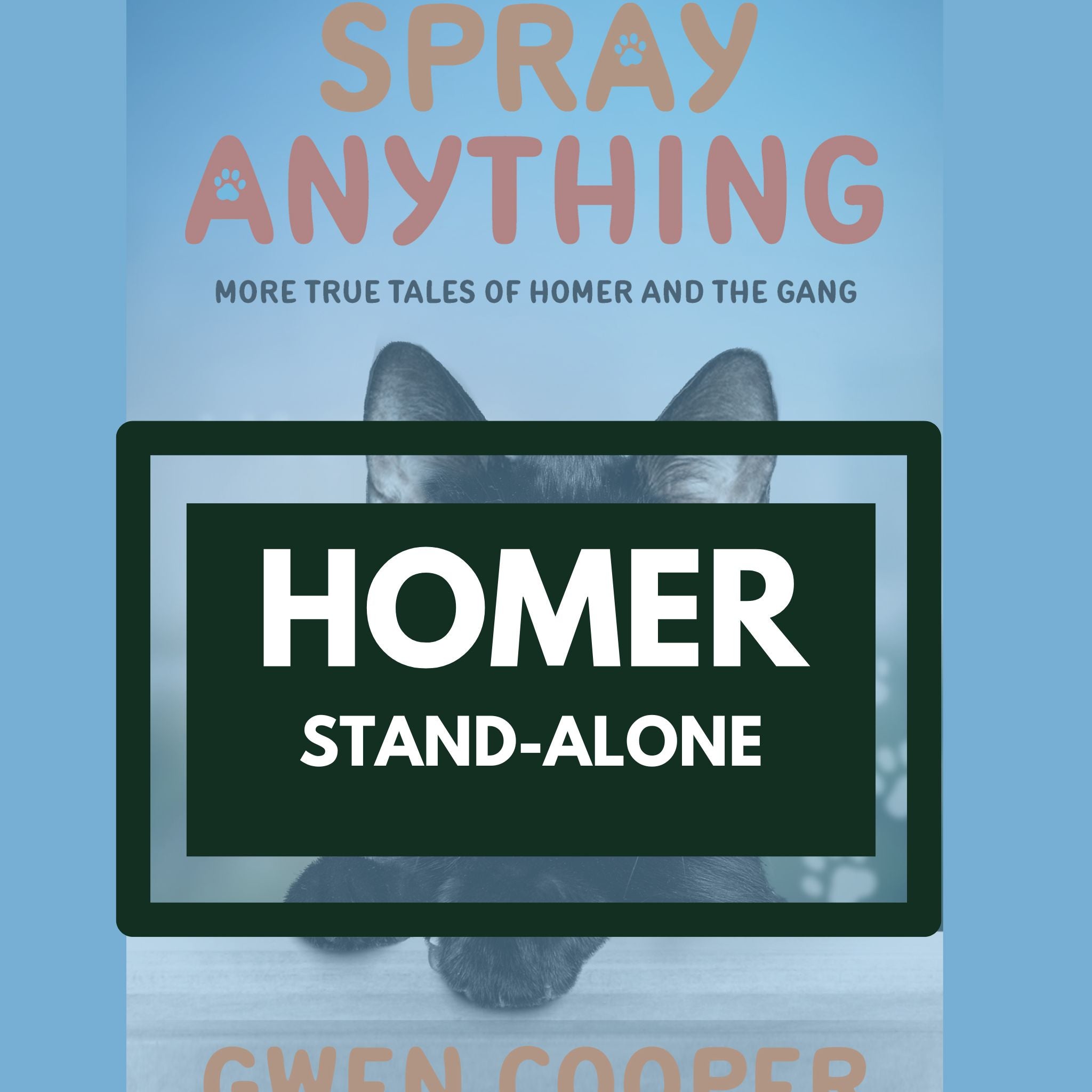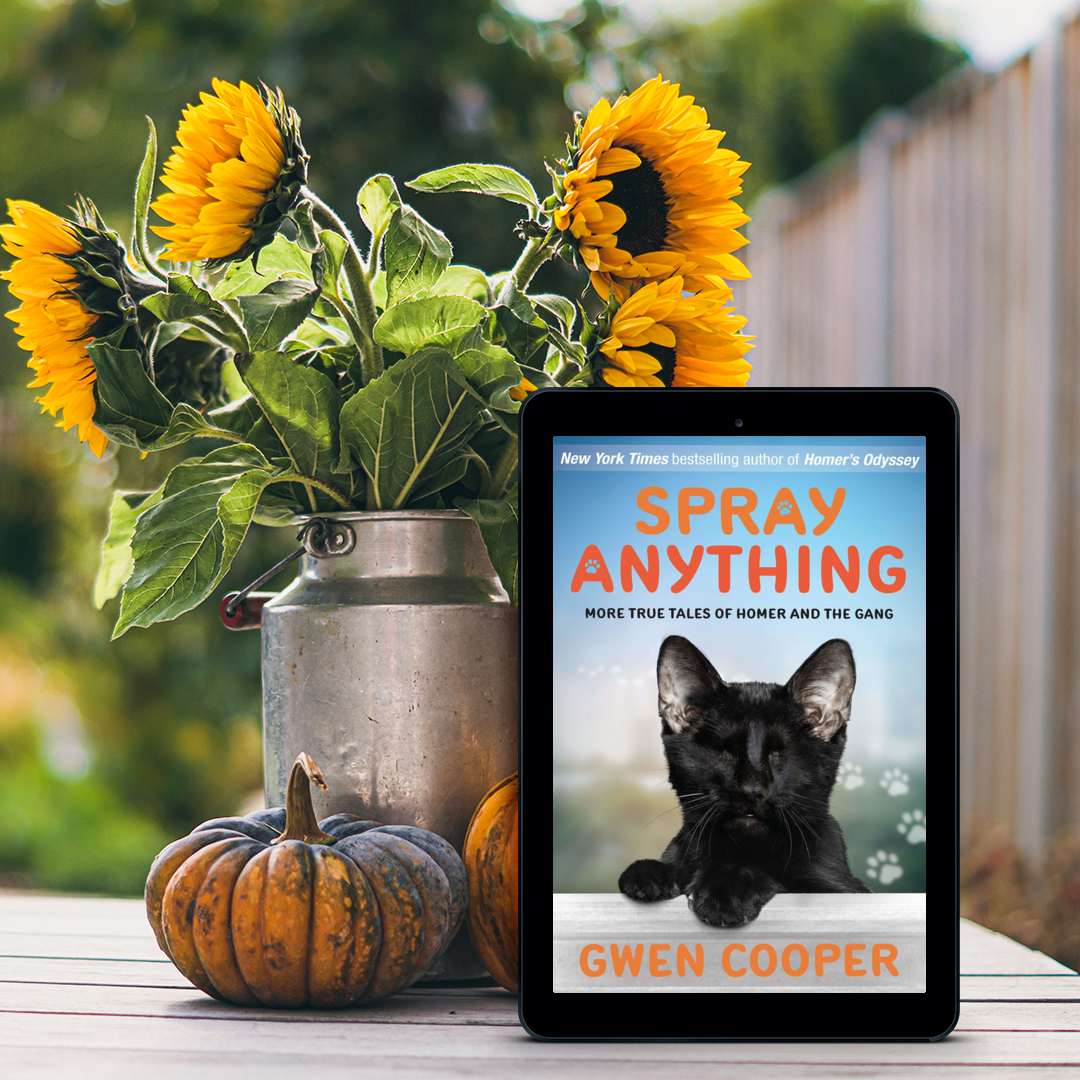


Spray Anything: More True Tales of Homer & the Gang (Homer Book #3)
“Gwen Cooper shines her light on the territory that defines the human/animal bond. That, in itself, is a reason to stand up and cheer.”
Delivery Information
E-books and Audiobooks: Delivered via email by BookFunnel immediately after purchase. Includes free, dedicated tech support!
Paperbacks: Delivered by our partner. Please allow 10 days for delivery.
Read A Sample
⭐⭐⭐⭐⭐ “A must-read for Homer fans. Heartwarming and beautifully written.”
⭐⭐⭐⭐⭐ “This book will delight you. Hard to put down once started!”
⭐⭐⭐⭐⭐ “Written in a warm and humorous way as only Ms. Cooper can tell it.”
⭐⭐⭐⭐⭐ “Such an enjoyable read!”
⭐⭐⭐⭐⭐ “Love Gwen Cooper and all her cats!”
Choose options



Gwen donates 10% of every purchase made in her online store to organizations that rescue abused, abandoned, and disabled animals.
